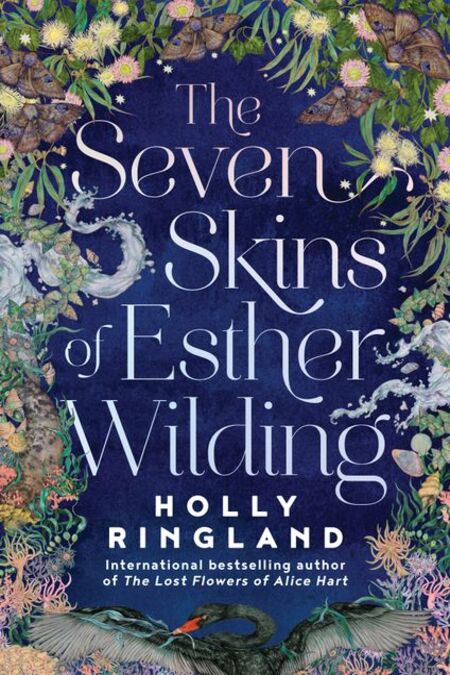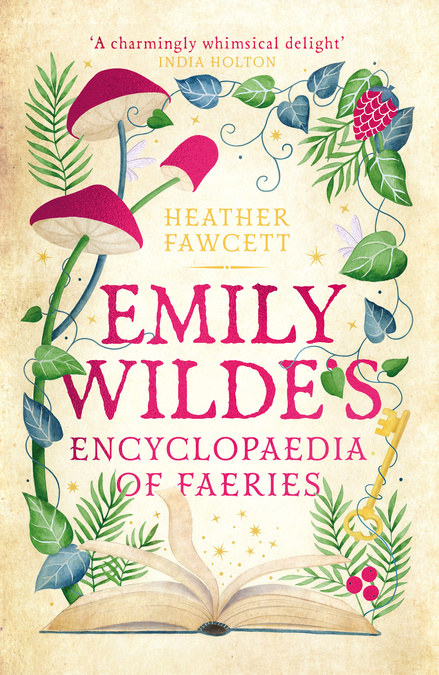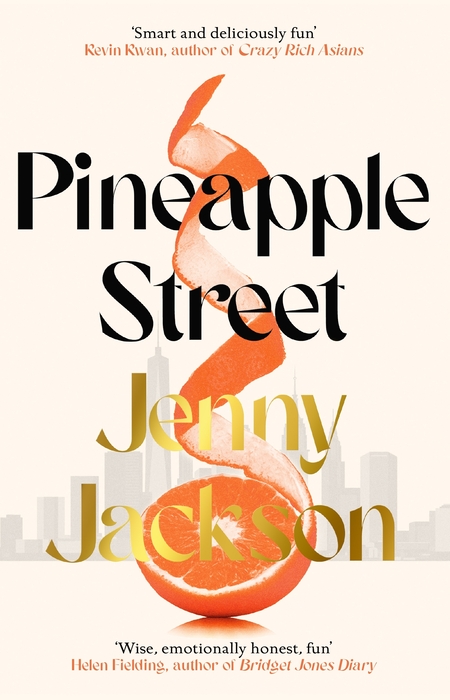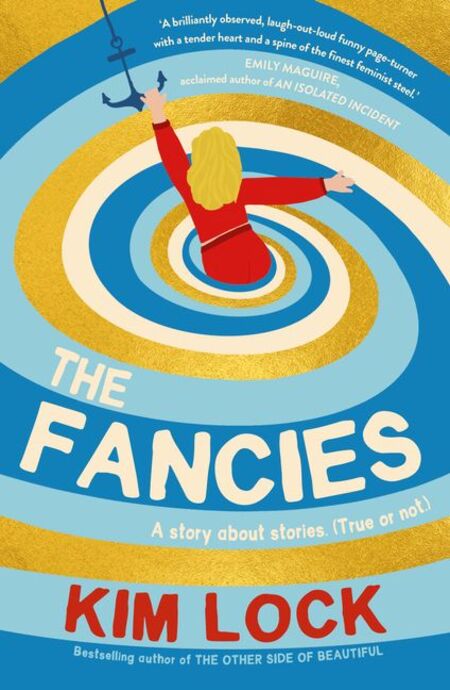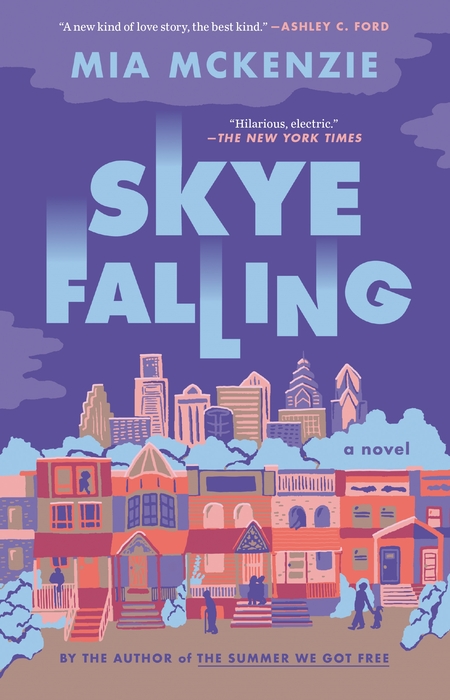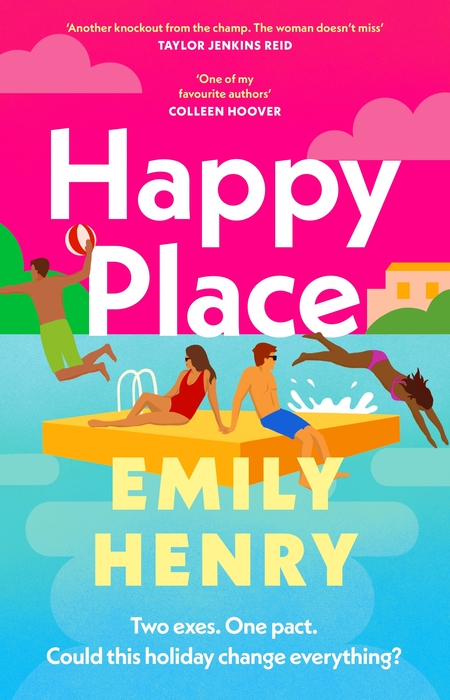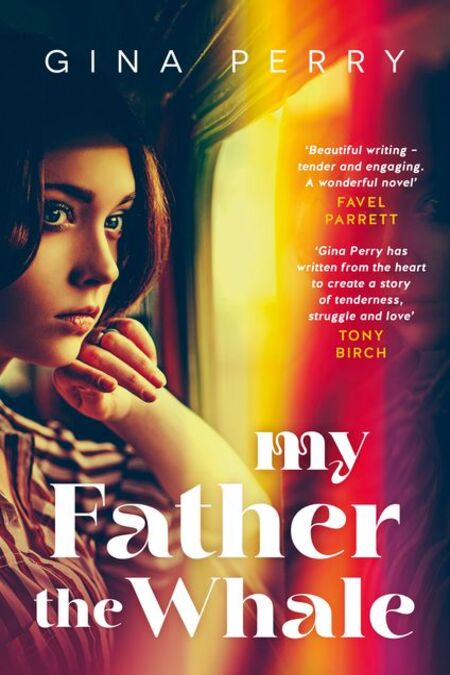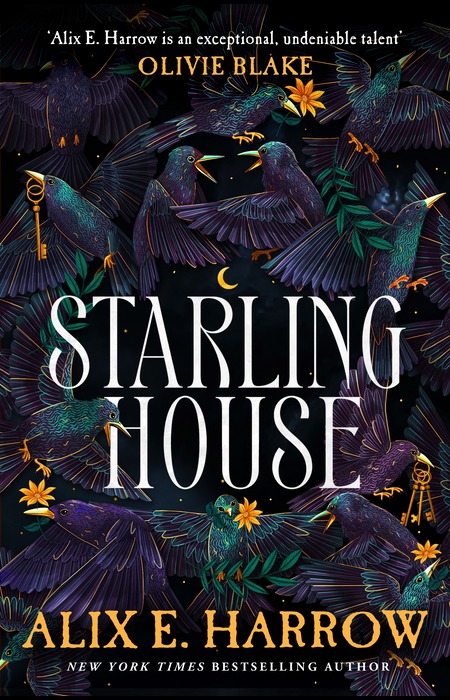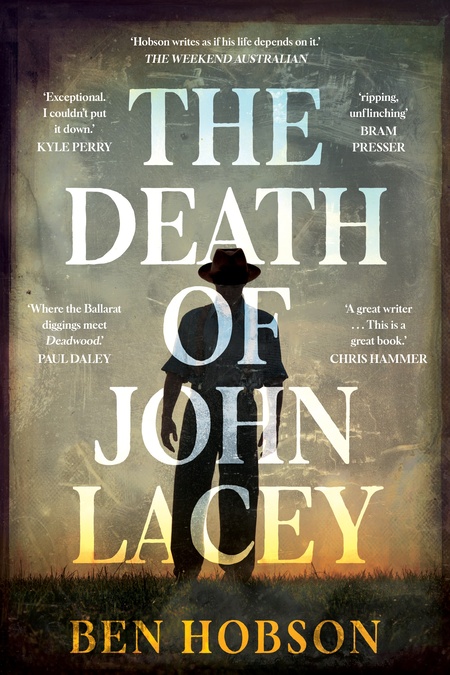(via Shutterstock)
Ever since I was a kid and bullying made the real world a scary and dangerous place to be, I have found books to be the ultimate comfort, the one escape I can count on to make everything seem a whole lot more magical and good again.
Even if just for a little while.
And while adulthood is thankfully free of bullies and idiots – though if you commute, you will know that’s never fully the case, especially on peak hour train runs – it comes with more than its fair share of stresses and strains, all of which take their toll but which can ameliorated and made better by curling up with a good book.
I read to and from work on the train, at night before bed and honestly anytime that life feels a LOT and it works a treat every time, something that has become palpably clear in a way where I was doing the work of four people with all the attendant stress that generates.
If it wasn’t these 25 brilliant books, which run the genre gamut and amuse me much as they challenge and provoke, the year wouldn’t have been anywhere near as enjoyable or fun, and it certainly would’ve felt emptier and far less satisfying.
So, thank you to books and to reading and to the magical places they take us to, the necessary lessons they impart and the life they give beyond the ordinary; they save us over and over, and they saved me constantly this year and I will always be thankful for their prevailing presence in my life.
The Seven Skins of Esther Wilding by Holly Ringland
The great gift of this novel, quite apart from the journey of grief and healing on which it takes us, is that it gifts us with real people who don’t simply skip out of the terrible sadness of their interim world into a changed but optimistically changed future.
Esther in particular, but also those around her, including Aura’s best friend Nin, and the sisters’ mother who harbours great pain of her own, have to work hard, battling external circumstance and internal obstacles, to get to the point where life doesn’t feel just possible again but wholly and evocatively, joyfully alive.
It’s an arduous journey, marked by steps forward and steps back, but it’s one that Ringland brings evocatively alive with poetic emotionality in The Seven Skins of Esther Wilding, a novel which weeps with loss, sits in the inertia of painful loss and roars back, first with a whimper and then with a joyful bang, and which helps us to see that while grief can be overwhelmingly overpowering, life is more powerful still if only we can reach a place where we can let it in.
Sincerely, Me by Julietta Henderson
Sincerely, Me sings to the heavens with writing that is lovely and emotionally weighty all at once, a love letter to what second chances, however much they might feel undeserved, and forgiveness can do to ailing lives, and how tentative first steps can quickly become a race to fall into far too long shunned arms and hearts.
Reading this book feels like a hug to the soul but it also joyously feels like walking closely with someone, all too aware of their flaws, losses and frailties, and knowing how real and hard it can be to find healing, but that it is possible, and when it comes, rewrites life in ways that make the future feel less like an emotional death sentence and more like a thrilling ride into the wonder and love you wanted all along.
Wolfsong by TJ Klune

This sense of inclusive belonging is a recurrent theme throughout Wolfsong which upholds the inherent worth of those outside of the usual norms, in this case werewolves and the sexually fluid, and holds them up as people and creatures of real worth and innate value.
When you have been reviled all your life for not being “right” or good enough, having a novel as beautifully sensitive, emotionally resonant and poetically written as this one tell you through the story of its healed and restored lead character that you matter and have value beyond words, is a tremendous joy of almost unquantifiable worth.
The story of Ox and Joe, and the wondrous found family/pack that grows around them, is one for the emotional ages, a tale so rapturously, verdantly alive with understanding, truth and care (which is also filled with thrilling terror, grief and loss) that it’s hard not to embrace Wolfsong, as has happened with The House on the Cerulean Sea and The Whispering Door before it, as something truly special and revolutionarily bold that brings you alive, as it transforms Ox who faces immeasurable terrors and horrors on his way to fulfilling what he could never admit to himself – that he has value, that he matters and that he is the very beginning and end of the world (especially to Joe) which is all the better for having him in it.
Legends & Lattes by Travis Baldree
Quite apart from the premise of a battle-weary orc opening a café selling something few people or creatures have ever drunk, which Baldree realises all kinds of witty cracks about baristas and the origin of the word “latte” (it’s a gnome thing), Legends & Lattes sparkles with beautifully realised dialogue that is as hilarious as it is wondrously heartfelt.
All of the characters have their issues and challenges and it’s part of the reason why they find an unconditionally loving and inclusive home with each other, but they’re either capable of being funny or finding themselves in situations that are downright comedic, and it’s this humour running through Legends & Lattes, mixed with some real humanity or orc-osity or whatever creatures find a home in the café, that make this novel such a delight to read.
It’s greatest gift is that it gives you fantasy and reinvention in one highly-imaginative package that embraces stellar worldbuilding, fully well-rounded characters that you quickly come to adore and root for, and a narrative that’s both intense and amusingly light and which reminds you that, much like unlikely genres, wholly disparate people can come together, find a home and family (and some damn good pastries) and a new path in life, one that faces down challenges and obstacles and comes out the other side, eager to see what lies ahead and armed with the coffee to face it all.
Emily Wilde’s Encyclopaedia of Faeries by Heather Fawcett
There is nothing about Emily Wilde’s Encyclopaedia of Faeries than isn’t enchantingly wonderful, from the vibantly, fully fleshed-out characters to a storyline rich in common living and magical worlds, and some sagely quirky life lessons about how people may be difficult and problematic at times but how they can make life, anyone’s life, infinitely better if you can simply open your heart freely to them.
If you want cosy and delightful with a healthy dose of darkness, then Emily Wilde’s Encyclopaedia of Faeries is your next must-go-to read, a tale of the fantastical and the human that speaks to the power of connection, openness, love and sacrifice and the fullness that comes from letting yourself grow into more than you once were.
Under Fortunate Stars by Ren Hutchings
Under Fortunate Stars also has some fun, with witty dialogue and wry observation aplenty, with what happens when events that are expected to go one way, simply don’t; do you panic and worry about what the effects will be or do you simply accept that the best has been done and all you can is hope history, whatever it is in actuality, will happily repeat itself?
There’s a bit of both in this thrillingly warm and thoughtful puzzle-piece of a novel, which infuses a dark and dangerous situation with lots of wonder, hope and excitement at being involved in something far bigger than itself, rendering Under Fortunate Stars as one of those rare books that is both full-on action and intimate emotionality, rich with humour and meaning and characters who pop off the page and into your heart, and a sense that whether it’s in the past, present or future, we need each other, we need to see beyond the obvious and we need to always be open to the fact that life rarely plays out the way we think it’s going to.
Romantic Comedy by Curtis Sittenfeld
Brought alive by whip-smart dialogue and clever storytelling that brims with real insight and compassion for the potholes of the human condition, Romantic Comedy is that rare rom-cm that feels it could actually take place in the real world (a sensation bolstered by it being set in part over the height of the COVID pandemic in 2020).
No matter what tropes or clichés in play at a given time, the novel always feel anchored by some very human insight and writing that always calls out the obvious romantic elephant in the room and handles it in a way that a real person, full of flaws and self doubt as much as they brim with talent and vibrant competency, likely would.
It all feels so deliciously grounded, a mix of romantic vim and vigour and cognizance about how our lives rarely track like a rom-com script, and in so doing, it fills you with a buoyantly alive sense that no matter how dark things feel at times and how much we doubt our ability to live life the way we want to, that affairs of the heart can happen in the real world, and with as much humour and compassionate self-awareness as fairytale rom-coms convey, a shot in the arm of romantic hope that makes Romantic Comedy an absolute joy and pleasure to read.
Some Desperate Glory by Emily Tesh
The brilliance of Some Desperate Glory lies not simply in its fulsomely realised characters and it’s ability to be simultaneously action-oriented and emotionally intimate, but in the way it weaves so much social and political commentary into its narrative without once weighing it down.
The storyline is densely packed with all kind of insightful observations on the place of women in society and the way political narratives are spun that have no relationship to reality and which benefit only the few, not the many, and how fascistic control can warp not only whole societies but individual connections between people who end up relating not just on the basis of actual human need but propagandistic lines that prioritise a governing lie over relational truth.
Some Desperate Glory has a lot to say about these issues and so much, and its appeal lies in the way it always does from a wholly humanistic viewpoint, from the way it affects and warps people, and not from some tub-thumping, pulpit-gesturing polemic that cares only that the message is conveyed and not what its corrosive consequences might be.
That’s largely because this immensely clever novel which does some very smart things with space and time is at heart a tale of one person facing impossible realistions and odds who has to remake her entire existential outlook on the run all while trying to save a galaxy that bears no relationship to what she thought she knew, and whose unpredictability and raw humanity might just be the best thing to ever happen to her (that is, if she survives it all).
The Collected Regrets of Clover by Mikki Brammer
Thankfully, Brammer has written her debut gift of novel in such a way that it never feels like some sort of preachy polemic about leading a rich, better and more fulfilling life; Clover’s life isn’t awful and she is not a terrible person but could her life be more alive, more populated by friends and maybe even a love interest?
It could be, all of our lives can and could be, and Brammer beautifully takes incipient moments of revelation and crafts them into a gathering wave of change that feels wholly authentic and much like what would happen in the real world though also with a heady dose of hopeful magicality that always comes with those moments when everything changes.
The Collected Regrets of Clover is a gem of a novel because it goes beyond all the emotional and narrative touchpoints of books in the “happy redemption” genre and does something quite affectingly remarkable by showing us someone very much like us who’s caught in an enervating web of her own making and who finds in ways delightful and achievably grounded that she can change, her life can be different and her world can change and with it (all with the help of people like her beloved neighbour, Leo), a pedestrian walk to death can be suddenly and wonderfully transformed into a happy and fulfilling dance through life instead.
Crushing by Genevieve Novak
But intention and execution don’t always meet neatly or easily in life, and it’s in the gaping chasm between the two that Crushing finds some of its most fertile and relatable ground, taking Marnie on a hardscrabble journey with no easy answers and where her many attempts to work out what she likes, from spin classes to painting tuition, don’t exactly the hoped-for results.
But that’s life isn’t it, and one of the relieving joys of Crushing is being reminded again and again that the answers we seek may not be the ones we need and that life has a way of surprising us with some wonderfully suitable good things but only after being through the messy, drunken, crying your eyes out mill a time or two.
Fallible but lovably and relatably so, Marnie is the perfect protagonist for Crushing, a novel full of vivacious, wittily, sparkling dialogue, characters who leap off the page in fully-formed, very human likability, and a story which doesn’t follow the easy route and which gets Marnie where she needs to go by routes and means that shock and surprise her but which might, despite initial appearances to the contrary, be exactly what she needs in the long-run as she seeks to forge an authentic life that actually means something.
Tomorrow, Tomorrow and Tomorrow by Gabrielle Zevin
Sadie and Sam, despite their profound and enduring connection, don’t always get or love each other, and at times outwardly hate each other, but something always draws them close again, the two of them joining intimately by their quest early on to take on the real world and beat it at its own escapism-battering game.
They rarely succeed, of course, but watching them try, and try, more often that not, together, is what gives Tomorrow, and Tomorrow, and Tomorrow so much affecting vibrancy and richness and what makes it so beguilingly readable.
We want our dreams and hopes to take on real life and win, and so as read about Sadie and Sam trying to do that, we cheer them on, hopeful they will prevail; they don’t, alas, at least not as much as they’d like to, but their connection endures and their dreams kind of do too, even if they aren’t realised as hoped, and it’s watching that eternal push & pull between the imagined and the real, borne out in the life of two very real people, that makes Tomorrow, and Tomorrow, and Tomorrow so compelling to read and why it stays with you long after the two of them have, once again, gone their separate ways.
Ghost Girl, Banana by Wiz Wharton
As Lily pieces the shattered parts of her and Maya’s past back together, or at least holds all the pieces together since not everything can be fixed or healed, her sense of family and connection is restored too, leaving her no longer isolated and defensive but open to embracing a world that makes a whole lot more sense to her because she knows better who she is, who her family was and is, and what she wants from life.
Difficult though some of her discoveries, and fraught though the journey is at times, Ghost Girl, Banana also shows how quietly powerful healing of the soul can be and how knowing who you are, really knowing who you are, can quietly but fundamentally change you for the better,
There is such beauty to both the story and the exquisite writing used to tell it, making Ghost Girl, Banana one of those novels that is simultaneously a literary work of art but also a grounded insight, told with empathy and compassion, and not a little wit, into what happens when we are brave enough to search for the past unvarnished and unite with a troubled present, not knowing what will happen but hoping it is something better than what came before.
The Celebrants by Steven Rowley
This beautiful, arrestingly affecting tension between the darkness and bleakness of life and its capacity for joy-filled, if imperfectly-realised connection sustains The Celebrants through some intimately intense narrative shifts and turns.
Much like The Guncle, which was lighthearted in its execution while being grittily honest in its narrative intent, The Celebrants knows that life is a mix of both and that we all swing, in one way or another between the lightness of seeing friends and catching up and the way in which they can get, often uncomfortably, right to the heart of us, and both damage us, and build us up.
Balancing idealistic hope and rich friendship with anger, disappointment and prickly tension, The Celebrants is as real a look at the travails and challenges of growing older as you’re ever likely to find, full to the marvellously enrapturing brim with truth and honest, buoyant humour and searing sadness, of it a reflection of life in all its forms, with every moment, bumps in the road aside, and they’re a plenty, made all the better by having friends who are family and who, and this is critically important, know how much they mean to each other and live it out in ways you will immensely moving and will not quickly forget.
Pineapple Street by Jenny Jackson
It’s rare to have a book be both charmingly buoyant and emotionally searing but Pineapple Street does it with élan, following in the likes of a lot of Scandinavian pop music which often marries upbeat melodies with lyrically dark incisiveness to persuasively listenable effect.
At no point does either element compromise or cancel out the other, manifesting together as a delightful story that captures your mind with its thoughts on a whole range of personal and societal issues while also firing up the hope and optimism implicit to genres that celebrate redemption, growth and the ever-elusive happy-ever-after ending.
Often simultaneously funny and meaningful, Pineapple Street is a gem of a read because while it occupies a milieu of human existence few of us will ever experience firsthand, it is also groundedly accessible, touching on what it means to be human on a whole range of issues and in a multiplicity of circumstances, and proving that while money does obviously make a difference, it doesn’t inoculate you against the vicissitudes and challenges of life and that in the end, a little bit of self-aware, open and willing to change humanity, not to mention empathy, goes a long, long way.
The Fancies by Kim Lock
It sadly doesn’t matter whether it is true or not, and while we may think nothing of the stories we wrap ourselves to comfort or dead the pain, or make buoyant or self-justified something quite darkly not so, the truth is they can wound and hurt as Abigail can attest all too painfully.
But you can only suppress pain and trauma for so long and twenty-four years after Port Kingerton three its young women to the wolves and failed to find out what truly happened to them, content to let group think triumph over empathy and care, it finally if reluctantly begins to make peace, weird thigh bone on the beach and burning fishing boat all, with its flawed past.
Rich with vivacious humour, startlingly well-realised characters and dialogue that zings with wit and humanity (good, bad and indifferent), The Fancies is a supremely wonderful piece of storytelling that knows we are capable of stories without number but that asks us to consider what those stories can do to others and whether in the telling we may doing more harm than good and may doom people to lives lived in hurtful shadows until the truth hopefully emerges (if it does at all) sometimes in a much-delayed future.
Skye Falling by Mia McKenzie
Queer to its core, and as laugh-out-loud funny as it is seriously, emotionally impactful, Skye Falling is a gem of a novel that doesn’t pretend you can tame or smooth out life’s wildest, messiest impulses.
It doesn’t say that life, especially a queer one which comes laden with challenges and rewards all its own, can ever be brought to heel, but what it does do, through the gloriously good imperfection of Skye is show us that you can go forward even while battling to leave the spot on which you stand and which has sustained through your pain until all of a sudden it cannot.
What you do next isn’t neat, it isn’t linear and it isn’t clean or easy but it is living, something Skye hasn’t really done for years, and as Skye Falling winds its way to an upliftingly grounded end with snappy, smart and funny dialogue, a keen eye on what it means to be queer and Black and Other, and warmly inviting characters who feel like family by book’s end, you realise that even in healing and renewed connection, life will not yield its chaotic symphony of madness and that that’s okay because in the midst of the storm, you can find a storm and as Skye attests, that’s all you really need.
The Porcupine of Truth by Bill Konigsberg
Not bad for novel with a whimsically quirky title, right?
Once again, that’s the thing with books titled like that; they lure you in with their apparent playfulness and suggestion a road trip and humourously expressed teen angst and then go hard on a slew of salient truths that might hit hard in the lives of two protagonists not yet into adulthood but which has some impressive application to anyone’s life if you’re willing to pay attention.
Truths like seize the day, say what’s on your heart – minds are easy, hearts not so much – find those missing puzzle pieces of your life and family and don’t be afraid to lay everything on the line, including access to the first credit card (for “reasonable expenses”) that you’ve ever had in your life.
Written with verve, fun, wisdom and a heart-healing insightfulness that will blow your mind and revive your soul (yeah, it’s that good), The Porcupine of Truth is a sheer delight of a novel with protagonists and supporting characters you will love, a queer honesty that refreshes, empathy and humour in abundance and a gloriously good sense that the life you have know, ailing as it is, may not be the life you end up if you just take some chances in a dodgy car, a new friend and a porcupine full of all the kinds of truth you are ever going to need.
Viewer Discretion Advised by Angus Stevens
Full to the brim with love and longing, Viewer Discretion Advised is that rare novel that dazzles an intriguing idea before you and absolutely knocks it out of the park, rewarding you with a story that goes to places you don’t even expect and which leave supremely glad you went there.
This is therapy in a book and it works a treat because while you are adventuring and escaping with Adam, you are also privy to and impacted by the way in which he is changed and reshaped by his experiences and how they call upon him to set aside all the stuff he thought mattered and to fight to save and get back to what is actually worth his time, heart and attention.
Suffused with pop culture brilliance, Viewer Discretion Advised does an exemplarily wise and heartfelt job of taking you into the movies you love, evoking what makes them so magical but then asking you if that’s what you really want instead of life, or whether perhaps, perhaps, what you really want and need is to dig down, find the stuff that makes you truly glad to be alive and hold tight to it so hard that nothing else will ever matter quite so much again.
Happy Place by Emily Henry
While there is a fairytale rom-com quality to them with a healthy dose of wish fulfilment thrown into the mix, Henry’s books always sit in the real world of human relationships with all of her characters having to really go through the ringer and earn their happy-ever-after, assuming one is even in the offing (it usually is but there is no guarantee at any point that you will get there or that it will be easily reached).
Happy Place does an hilariously funny and soul-searingly honest job of celebrating those close ties that bind us while acknowledging that they are not inviolable to time and change and that we must fight for what and whom we love if we don’t want to lose them.
You will dive into Happy Place because of its slapstick-potential premise and stick with it wholeheartedly because of its beautifully formed characters who capture your heart with their fun, humanity and relatability, it’s writing which is vibrant and heartfelt to the hilt, and its sage understanding of how much we need our found families and the people to whom we belong and whom love without condition, but that as life moves on and morphs and changes, that we must work hard to hold onto them and keep them close and keep as alive and as important into the future as they have been and must continue to be if life is going to keep feeling like home.
The Frugal Wizard’s Handbook for Surviving Medieval England by Brandon Sanderson
As reads go, The Frugal Wizard’s Handbook for Surviving Medieval England is a marvellously entertaining and emotionally intense surprise that runs hard with its observationally hilarious elements, it’s good vs. evil adventuring which also turns out to be one big live action therapy session in ye older times garb.
This novel will surprise you and delight you and enthral you and make you wonder what might happen if someone kicked you right out of space and time, memories off with the pixies (or wights or elves as the case may be) and demanded you step up and the (very small) world all while trying to figure out who you are and just as importantly why you are.
If you’re curious for an answer, this novel is the book you’ve been looking for and who knows, in finding out who you are, you might just discover who it is who’d really prefer to be.
My Father the Whale by Gina Perry
Told with a quiet beauty, abundant empathy and a strong sense of the power of belonging and of being unconditionally loved, My Father the Whale is the sort of novel that wonders about how childhood trauma informs us as adults and if there is any meaningful way to really make headway through that pain and make peace with your past.
That’s Ruby’s great and enduring challenge in the final half of the novel which even in its final scenes doesn’t act as if life ever folds itself neatly into a pretty bow.
Sure, it acknowledges that healing is possible and that if people are open to it that we can make accommodation with the past that shaped our present, but it’s not an easy journey and might involve a great deal more short term pain and disruption that we bargained on.
My Father the Whale is profoundly beautiful and affecting book that, written in a way that both earthy and heartfelt and insightful, really dives deep into what it’s like to have our past come crashing inelegantly and without warning into the present and how change is possible and healing can happen but only when those who hurt us, even inadvertently, are willing to part with their secrets, make the past an open book and finally let us walk into a present unencumbered by pain and well and truly ready, however tentatively, for what comes next.
The Wake-up Call by Beth O’Leary
But this is a rom-com and O’Leary is not about to wave some magic wand or make this too easy for the fated twosome, and so while this is rapprochement and steps taken to one another, there’s a lot of backward stepping to, all of which is beautifully judged and adroitly doled out so we get the happy ending we know Lucas and Izzy need just when they, and we, need it.
It’s a masterful piece of rom-com writing and it marks The Wake-Up Call as something delightfully, wonderful, heart-liftingly, warmly special, full of characters you adore, situations with humanity and hilarity, a happy festive buzz, and a story that gets where you know it’s going to go in ways that surprise and enthrall and which deliver the requisite happy ending in a way that defies the cold, dead hand of emotionless reality and answer the call every single true romantic on this planet has – to be loved, to know unconditional acceptance and to find a home that will last a lifetime.
Starling House by Alix E. Harrow
The short answer is no, of course, and Starling House spends much of its wildly passionate, emotionally raw and fascinatingly fantastical narrative celebrating the fact that life defies any notion of easy, smooth categorisation and that we cleave to such a simplistic view of the world at our peril.
Certainly as Opal finds a home with Arthur and those house itself, and discovers she has a found family around her hidden from view but there all along, she learns that the world is complex and challenging and dark, and that if she wants to hold onto the unexpected home she now has that she’s going to have to fight for it, and fight hard.
Not just against the bigots who likely see queer love and people who markedly diverge from the social norm like Opal and Arthur as crimes against humanity when in fact they are its diverse and gloriously different beating heart, but from people who see the world as something to be exploited and used at all costs and damn anyone who gets in their coldheartedly narcissistic way.
In Starling House, Alix E. Harrow, a writer of uncommon skill, empathy and insight, freely admits the world is dark and broken place populated by far too many people bound to ill-thought out ideas and far-too-small views of life and its many wonders, but she also buoyantly celebrates but not without a great deal of pain and suffering for its protagonists including Opal who comes close to bowing her head to the inevitable but inspiringly never does, that we live in a landscape of wonders and diversity and buoyant vivacity and they though darkness might threaten it, if we cling to that salient fact we may yet find our home and that elusive sense of happy-ever-after.
The Death of John Lacey by Ben Hobson
Wrapped around and through this buoyantly nuanced and skillfully wrought dissection of what is commonly assumed by certain motherhood terms and what they end up being in the harsh light of self-interested day, The Death of John Lacey is at heart a story of brothers, and how the love between them defines not only how they see and interact with the world but how wider events around them come to be shaped.
Alive with some salient home truths, all sagely and movingly articulated by a writer vibrantly and rawly in touch with his writing gift and heart to an extraordinarily affecting degree, The Death of John Lacey is another compelling triumph for Hobson.
It serves up real thoughtfulness on what we mean by wholesome-sounding words that we toss around like confetti but also ruminates rewardingly on how a country like Australia, established with blood, injustice and a wholesale lack of empathy and mercy, has come to be defined by mythos and perceptions that are wholly flawed and which need the kind of ground-up rethink Hobson gives them.
Christmas at the Beach Hut by Veronica Henry
For all its willingness to tell it like it is, Christmas at the Beach Hut is first and foremost a story about finding somewhere to belong and people with whom you can be connected and who will have your back as you will have theirs.
It also encourages all of us to never forgo any chance meetings with strangers and dismiss them as nothing because they might lead somewhere quite magical and we could find our lives changed, if not in an instant, then in ways down the track that we might never have envisaged.
The joy of Christmas at the Beach Hut is how much love and warmth packs into it pages; it celebrates Christmas and all its trappings and possibilities in ways that will warm the soul and make your heart sing, but it also knows that life rarely plays neatly to the idealistic notions we hold and that sometimes we need to reach out, reach in, find the people who will make things better and hold tight to them while finding again those things that have always sustained us and that with hard truths and self-aware honesty, will sustain us again, not just at Christmas but all through the year.
So those are my favourite books of the year but what does The Conversation think?

